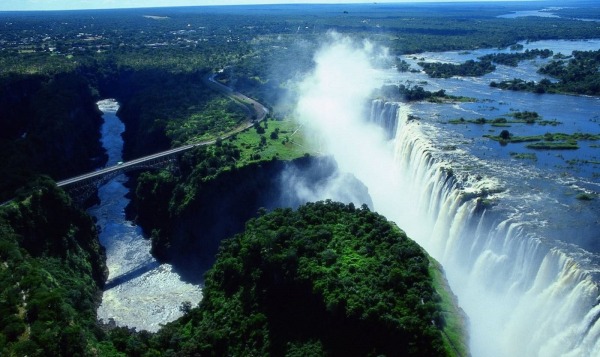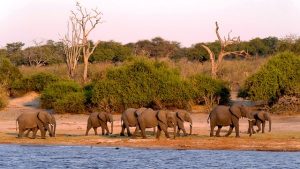Warnings & Dangers in Zimbabwe

OVERALL RISK : MEDIUM
Zimbabwe can be safe to visit if you follow specific security measures. For example, you avoid walking late at night, do not get involved in disputes and fights with the local population, have anti-malaria drugs, and a first-aid kit with you.

TRANSPORT & TAXIS RISK : MEDIUM
Public transport is not particularly reliable; it is better to choose a taxi. It will be inconvenient for you to move in your car because the roads are not in the best condition, and the drivers are rough on the road. In a taxi, make sure the driver turns on the taximeter.

PICKPOCKETS RISK : HIGH
Pickpockets in Zimbabwe are one of the biggest problems. Be extremely careful, never leave your belongings unattended. It is better to keep your valuables and documents in the hotel safe.

NATURAL DISASTERS RISK : MEDIUM
Zimbabwe experiences multiple natural hazards, including cyclones, drought, floods, and heavy rains. Droughts affect rural and urban food security, water supplies, and livelihoods. Recurring floods damage property, infrastructure, and disrupt lives.

MUGGING RISK : HIGH
Armed severe attacks and robberies are possible in Zimbabwe if you are not careful. It is not recommended walking outside your yard late at night, and it is also better not to attract attention with expensive devices and cash. Remember that you cannot entirely rely on the police here.

TERRORISM RISK : LOW
There have been no terrorist attacks in Zimbabwe. However, their possibility cannot be ruled out. Avoid political and religious rallies and crowds.

SCAMS RISK : HIGH
Fraud in Zimbabwe is usually associated with the desire of local crooks to cheat with the prices of goods, services, and taxi fares. Also, there may often be people who ask to pay any entrance taxes or sell fake tickets for excursions. Double-check everything and be very careful.

WOMEN TRAVELERS RISK : MEDIUM
Women traveling alone should be especially careful. Do not leave the hotel after sunset, wear modest clothes, do not stay late in local bars. Better to get around by taxi than walking or using public transport.
How Safe Is Zimbabwe for Tourists?
Zimbabwe is not the safest country to travel to.
The crime index here ranges from medium to high.
The main problems are associated with home burglary, theft of belongings, car theft and robbery, vandalism, and a high level of corruption.
Zimbabwe has a high incidence of HIV and AIDS.
The country also has a low level of supply of medicines, so it is better to have any medications that you may need with you.
Malaria is common, so if you are not going to stay entirely in Harare or Bulawayo, it is recommended that you take antimalarial drugs.
Be sure to sleep only under a mosquito net, use mosquito repellents, and wear closed clothing.
Snakes are common in bushes, and most bites are on the leg or lower leg.
If you are walking, especially in tall grass, wear suitable boots and either long, loose pants or thick, hiking socks.
Many bites and stings are non-fatal even if left untreated, but it is safer to seek treatment, which is very useful these days.
Never leave personal items unattended, especially wallets and bags.
Be careful with those who ask or offer you help – they may be scammers.
Be careful with your opinion, as speaking against the government is a crime.
Do I Need a Visa to Visit Zimbabwe?
Visitors to Zimbabwe must obtain a visa from one of the Zimbabwean diplomatic missions or online unless they come from one of the visa-exempt countries or are eligible for a visa on arrival. A valid passport is a must.
Which Currency Is Used in Zimbabwe?
The Zimbabwean dollar is the official currency in Zimbabwe. It has sign: $, or Z$ to distinguish it from other dollar-denominated currencies).
How's the Weather like in Zimbabwe?
The best times to visit Zimbabwe for ideal weather are April to October. The average temperatures in Zimbabwe vary somewhat and the weather feels nice most of the year, excluding some hot weeks in the summer, with a low chance of precipitation most of the year.
What Do I Need to Know about Airports in Zimbabwe?
Robert Gabriel Mugabe International Airport is an international airport in Harare, Zimbabwe. It is the largest airport in the country and serves as the base of Air Zimbabwe. The Civil Aviation Authority of Zimbabwe operates the airport.
Should I Get Travel Insurance for My Travels?
Just like anywhere else, the travel insurance policy is a must when visiting a foreign country. Make sure you got it before starting your journey, the customs officer may ask for it.
What Are Some Things to Do in Zimbabwe?
Zimbabwe is a landlocked country in southern Africa known for its dramatic landscape and diverse wildlife, much of it within parks, reserves and safari areas. On the Zambezi River, Victoria Falls make a thundering 108m drop into narrow Batoka Gorge, where there are white-water rafting and bungee-jumping. Downstream are Matusadona and Mana Pools national parks, home to hippos, rhinos, and birdlife.
Is the Water in Zimbabwe Safe to Drink?
According to the World Health Organization in 2012, 80% of Zimbabweans had access to improved, i.e. clean, drinking-water sources, and only 40% of Zimbabweans had access to improved sanitation facilities. Tap water isn’t drinkable.
Is Uber Safe in Zimbabwe?
There is no Uber taxi in Zambia. But you can use any other local taxi services.

